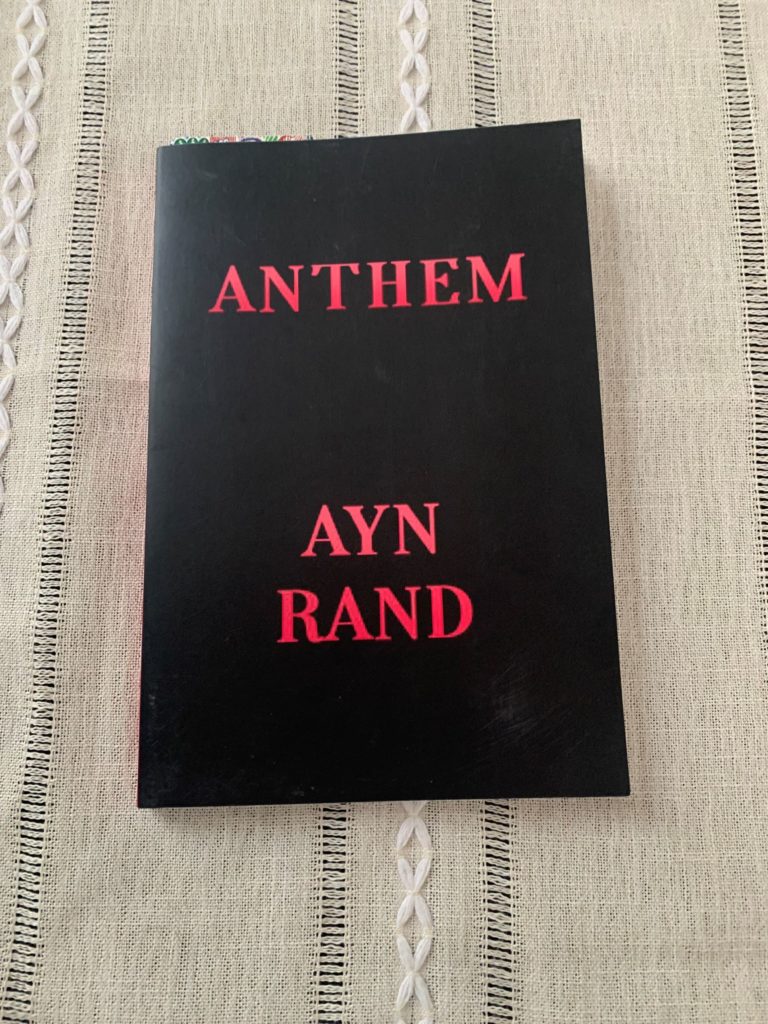These three chapters are the heart of the book. I suppose it is serendipitous that I chose to break the book up in this way. So, let’s get into it.

Chapter seven begins with Equality 7-2521 marching into the World Counsel of Scholars with his lightbulb. It went exactly how I expected that it would. In fear for his life, Equality escapes the city into the forest where he is sure no one will ever come after him. After surviving the night, he understands that he will never be able to return. The next day, who shows up in the woods out of the blue but the Golden One. Apparently, she has pretty good tracking ability.
It is pretty easy pickings to figure out what to talk about with this session. It is the sunk cost fallacy and the Council of Scholars. First of all, to be in the conversation you have to be part of the group. “A Street Sweeper! A Street Sweeper walking in upon the World Counsel of Scholars! It is not to be believed! It is against all the rules and all the laws!”. The first level of security is only having conversations with those initiated and approved.
There is now a closed feedback loop for any ideas. Once Equality connected the lightbulb, now there was sheer terror in the room. For some unknown reason, the light scared the scholars. But, then the next tool that is used is the power play. “How dare you think that your mind held greater wisdom than the mind of your brothers? And if the Councils had decreed that you should be a Street Sweeper, how dared you think that you could be of greater use to men than sweeping the street?”
Oh, but why? “Then it would bring ruin to the Department of Candles. The candle is a great boon to mankind, as approved by all men. Therefore it cannot be destroyed by the whim of one man.” So, this is the real problem. I don’t know if they were shocked that someone found something that they were not supposed to or that they were scared of the technology, both are possible.
How many times have we seen something surpassed by better technology? Using the automobile, it is clear that the 2023 version is highly superior (in most aspects) to the 1963 version. I can state this empirically because looking at studies, the average age of a vehicle on the road is 12 years old. In 1963, vehicles were lucky to make it to 100,000 miles. In fact, some vehicles in the 1970s were lucky to survive more than a handful of years.
On the other hand, how many times have we seen government prevent innovation by doing things for our own good. Let us just use the minimum square footage building requirement. This is strictly to protect tax base. Look at old houses that are one bedroom and one bathroom. The way this is effecting innovation is that it is not rewarding good design. It is also wastes resources via utilities, heating, cooling and lighting unused space. I don’t think that we suffer from houses that are too small, we suffer from poorly designed houses. If there is limitless space, there is no incentive to build better structures from an ergonomics standpoint.
Finally, there are forces in the industrial military complex that desperately want to replace the A-10. But, then there are greater forces that do not see the need. Why replace something that does the job effectively. This is the final insight, money of course. If something perpetually did the job and did it well, it negatively impacts someone’s ability to profit on the change. But then again, there is always the opposite perspective of someone supporting the status quo.
End Your Programming Routine: I am resisting the urge to jump ahead since I have already finished the book at this point. But, I am controlling myself. I don’t really understand the fear of the woods outside of the city. I don’t rationalize how they travel or even have a network of other cities if they are so contained to the space. But, I guess those are questions that won’t get answered. For now, I will settle on fighting the status quo head to head is bound to be nearly impossible.
Recent Comments